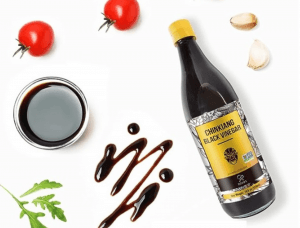What is the best Black Vinegar Substitute?
Are you looking for a black vinegar substitute? If you’re looking for substitutes for black vinegar in your recipes, you’ll want to consider ingredients that can provide a similar level of acidity and flavor. Keep in mind that the exact flavor profile of black vinegar may be difficult to replicate. However we think these alternatives will still add depth and tanginess to your dishes. Here are a few options: Balsamic Vinegar, Red Wine Vinegar, Rice Vinegar, Apple Cider Vinegar, White Vinegar, Malt Vinegar, Lemon or Lime Juice, Apple Juice.
Black Vinegar is a hard-to-find ingredient. It is not readily available, so it’s good to have a few tricks up your sleeve whenever you need to find an alternative to black vinegar.
Remember when substituting any of these options for black vinegar, it’s a good idea to start with a smaller amount and adjust to taste. The unique flavor of black vinegar might be hard to completely replicate, but these alternatives can still add a pleasant tanginess to your dishes.
What is Black Vinegar?
Black vinegar, is a type of vinegar that is commonly used in Asian cuisine, particularly in Chinese, Japanese, and Korean dishes. It is also known as black rice vinegar or black vinegar. It is made through the fermentation of rice, and sometimes other grains like barley or sorghum, using specific strains of yeast and acetic acid bacteria. The fermentation process gives black vinegar its distinctive color, flavor, and aroma.
Black vinegar gets its dark color from the fermentation process and the ingredients used. It typically has a deep, rich, and slightly sweet flavor with a tangy undertone. The flavor can vary depending on the production methods and the specific type of grain used in fermentation.
Black vinegar is often used as a condiment, marinade, or dipping sauce for various dishes. In Chinese cuisine, it’s commonly used in dipping sauces for dumplings, noodles, and various stir-fried dishes. Japanese cuisine also has a similar type of vinegar called “kurozu” which is used for various culinary and health purposes. In Korean cuisine, a variety of black vinegar called “chilsung” is used in different dishes as well.
Additionally, black vinegar has been associated with potential health benefits in traditional medicine practices. These include, acting as an aid to digestion, improving blood circulation, and promoting overall health. However, it’s important to note that scientific research on these health claims is limited. More research needs to be undertaken to fully understand the potential benefits.
Overall, black vinegar is a versatile and flavorful ingredient used in a variety of Asian cuisines for its unique taste and potential health properties.
Okay, before we look at your black vinegar substitute options, let’s deal with that empty cupboard situation!
Where can I buy Black Vinegar?
If you want to be more prepared and ensure you don’t run out of black vinegar then you should stock up now.
Black vinegar can be difficult to find as it is a specialist ingredient. We have included an link so you can purchase black vinegar on-line.
So why not jump on and place your order today.
STOCK UP NOW!
Rich, pungent flavor, with a hint of sweetness. Great smoky flavor and packs an umami punch.
A little goes a long way – so be careful when measuring it out.
What can I substitute for Black Vinegar?
Here are some of the best ingredients to substitute the flavor and role that black vinegar provides in your recipes.
- Balsamic Vinegar
- Red Wine Vinegar
- Rice Vinegar
- Apple Cider Vinegar
- White Vinegar
- Malt Vinegar
- Lemon or Lime Juice
- Apple Juice
Black Vinegar substitutes
Balsamic Vinegar
Balsamic vinegar and black vinegar are quite different in terms of flavor, acidity, and color. While you can use balsamic vinegar as a substitute for black vinegar, it’s important to note that the resulting taste might not be exactly the same. However, here’s how you can use balsamic vinegar as a substitute for black vinegar:
- Balsamic vinegar has a sweeter and richer flavor compared to the milder, smoky, and slightly sour flavor of black vinegar. You may need to adjust the amount of balsamic vinegar you use to achieve a similar level of acidity and tanginess.
- Black vinegar is dark in color, which can contribute to the appearance of certain dishes. If the color is essential to the recipe, you might want to consider mixing balsamic vinegar with a small amount of soy sauce or other dark sauces. This will help to mimic the color of black vinegar.
- Black vinegar tends to be less acidic than balsamic vinegar. If your recipe requires a specific level of acidity, you might need to adjust the amount of vinegar used. Try diluting the balsamic vinegar with a bit of water.
- Since the flavor profiles of these two vinegars are different, it’s a good idea to experiment in a small batch of your recipe before committing to a larger quantity. Taste as you go and make adjustments to achieve the desired flavor.
- Balsamic vinegar can work as a substitute for black vinegar in certain dishes that can tolerate the flavor difference. For example, you might use it in marinades, salad dressings, or sauces. Choose dishes where the unique taste of balsamic vinegar won’t clash with the other ingredients.
- If you’re using balsamic vinegar as a substitute in Asian dishes, consider complementing its flavor with other ingredients. Some ingredients commonly used in Asian cuisine, include soy sauce, garlic, ginger, or sesame oil. This can help balance the flavors and make the substitution more seamless.
Remember that while balsamic vinegar can be used as a substitute for black vinegar in some cases, it won’t perfectly replicate the taste and characteristics of black vinegar. It’s always a good idea to be open to experimenting and adapting recipes to suit the flavors you have available.
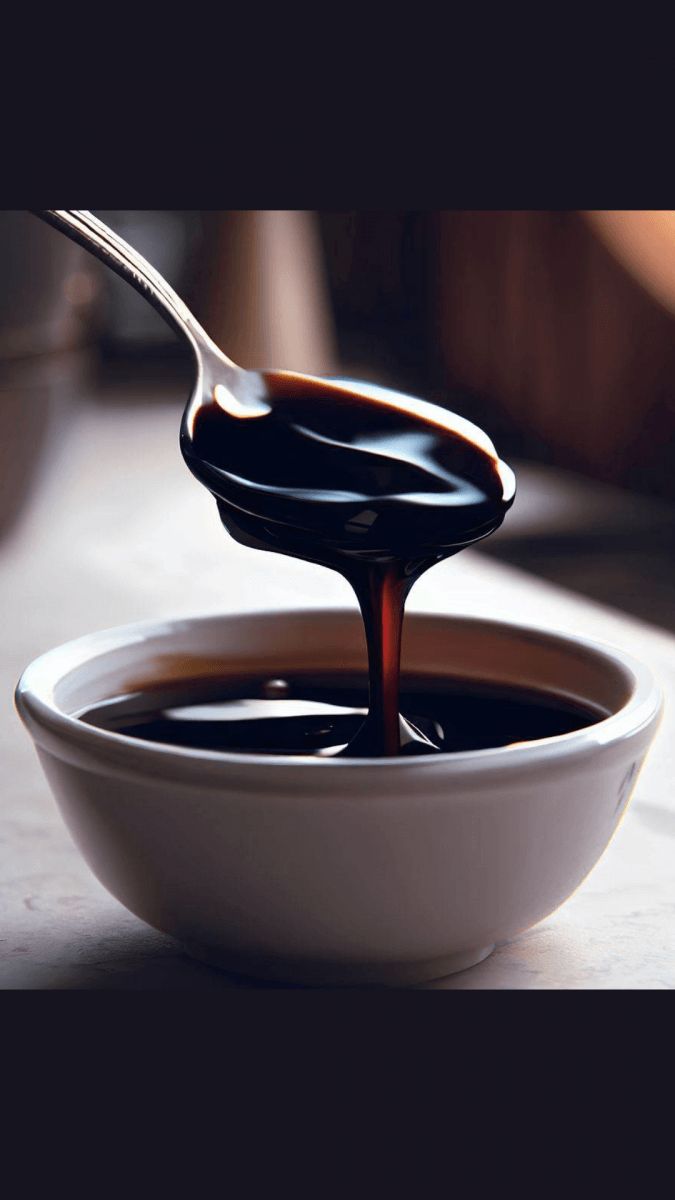
Red Wine Vinegar
Red wine vinegar can be a closer substitute for black vinegar compared to balsamic vinegar. This is because they both share a tangy and slightly acidic flavor. However, there are still differences in taste and color. Here’s how you can use red wine vinegar as a substitute for black vinegar:
- Red wine vinegar and black vinegar are both acidic, but the intensity of acidity can vary. Red wine vinegar tends to be moderately acidic, so you may need to adjust the quantity to match the tanginess of black vinegar. Start with a smaller amount and taste as you go. You can always add more if necessary – but you cant take it out!
- While both vinegars have a tangy taste, black vinegar often has a slightly smoky and deeper flavor. Red wine vinegar doesn’t have the same smokiness. Therefore, you might want to add a touch of sweetness, such as a small amount of brown sugar or honey. This will help mimic some of the complexity of black vinegar’s flavor.
- Red wine vinegar is, as the name suggests, reddish in color. While it won’t replicate the deep color of black vinegar, it can still work in dishes where color isn’t a crucial factor. If color matters, you might consider using a mixture of red wine vinegar and a small amount of dark soy sauce to darken the mixture.
- Red wine vinegar can be a good substitute for black vinegar in recipes that call for a tangy or slightly sour component. It can work well in salad dressings, marinades, sauces, and certain stir-fry dishes. You can also use it in dishes where the specific flavor of black vinegar isn’t a central element.
- As with any substitution, it’s a good idea to start with a smaller quantity and adjust gradually. Experiment with the amount of red wine vinegar you use. And you could add additional flavors until you achieve a taste that you’re satisfied with.
- If you’re using red wine vinegar in Asian-inspired dishes that originally call for black vinegar, consider using other complementary ingredients. Ingredients such as soy sauce, ginger, garlic, and sesame oil all help balance and enhance the overall flavor.
Remember that while red wine vinegar can serve as a substitute for black vinegar, it might not perfectly replicate its characteristics. However, your creativity and willingness to adapt can help you create delicious dishes even with alternative ingredients.
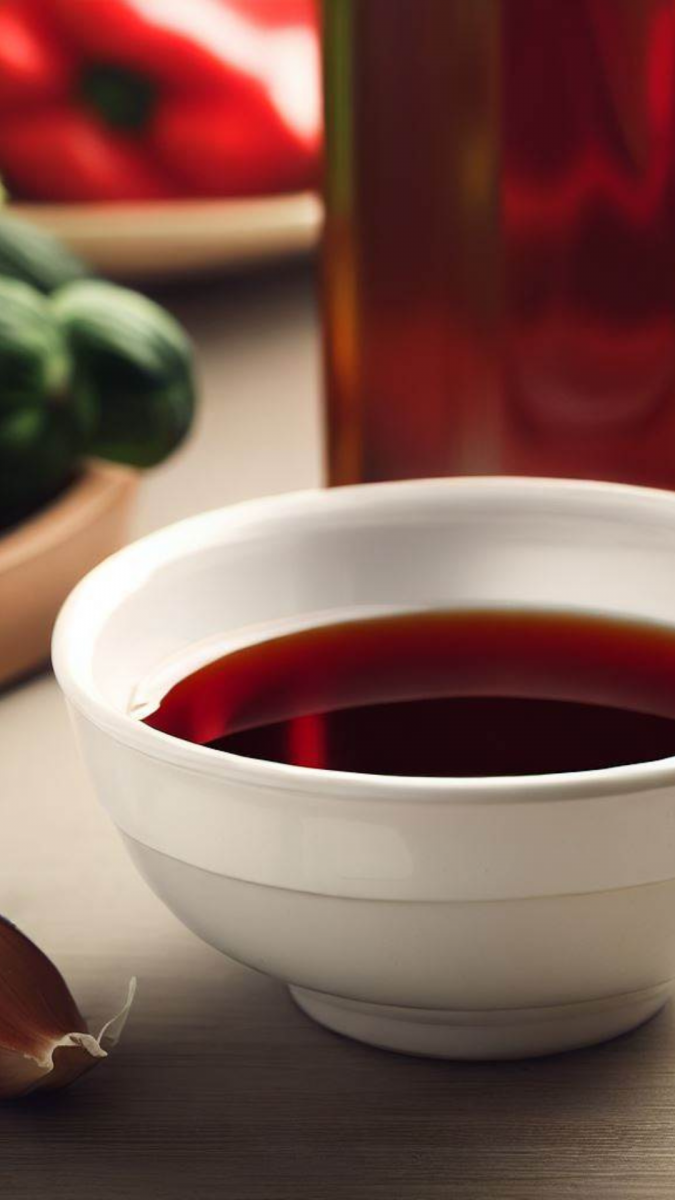
Rice Vinegar as a Black Vinegar substitute
Using rice vinegar as a substitute for black vinegar requires some adjustments since they have distinct flavors and characteristics. Rice vinegar is milder and sweeter than black vinegar, but it can still work in certain dishes. Here’s how to use rice vinegar as a substitute:
- Rice vinegar is generally less acidic than black vinegar. You might need to increase the amount of rice vinegar in your recipe to match the tanginess of black vinegar. Start with a smaller amount and taste as you go. You can gradually add more until you reach the desired level of acidity.
- Black vinegar has a slightly smoky and complex flavor that rice vinegar lacks. To compensate, you can add a touch of sweetness and umami to your dish. Consider adding a small amount of brown sugar, honey, or a bit of soy sauce. This will help mimic some of the depth of black vinegar’s flavor.
- Rice vinegar is clear, while black vinegar has a dark color. If the color of the dish matters, try adding a small amount of dark soy sauce to darken the mixture. Be cautious with the amount, as dark soy sauce can be quite strong.
- Rice vinegar can be a suitable substitute for black vinegar in recipes that require a mildly tangy flavor. It can work well in salad dressings, pickling liquids, and light marinades. Also it works well in dishes where the specific flavor of black vinegar isn’t essential.
- If you’re using rice vinegar as a substitute in Asian dishes, consider adding other ingredients commonly found in Asian cuisine. This will enhance the overall flavor. These might include ginger, garlic, sesame oil, and a touch of soy sauce.
- Like with any substitution, it’s best to start with a smaller quantity and adjust gradually. Taste as you go and make sure to achieve a balance between the vinegar’s acidity, sweetness, and any additional flavors you’re incorporating.
Remember that while rice vinegar can work as a substitute for black vinegar in certain situations, it won’t replicate its exact taste. Your willingness to experiment and adapt can lead to delicious results, even with alternative ingredients.
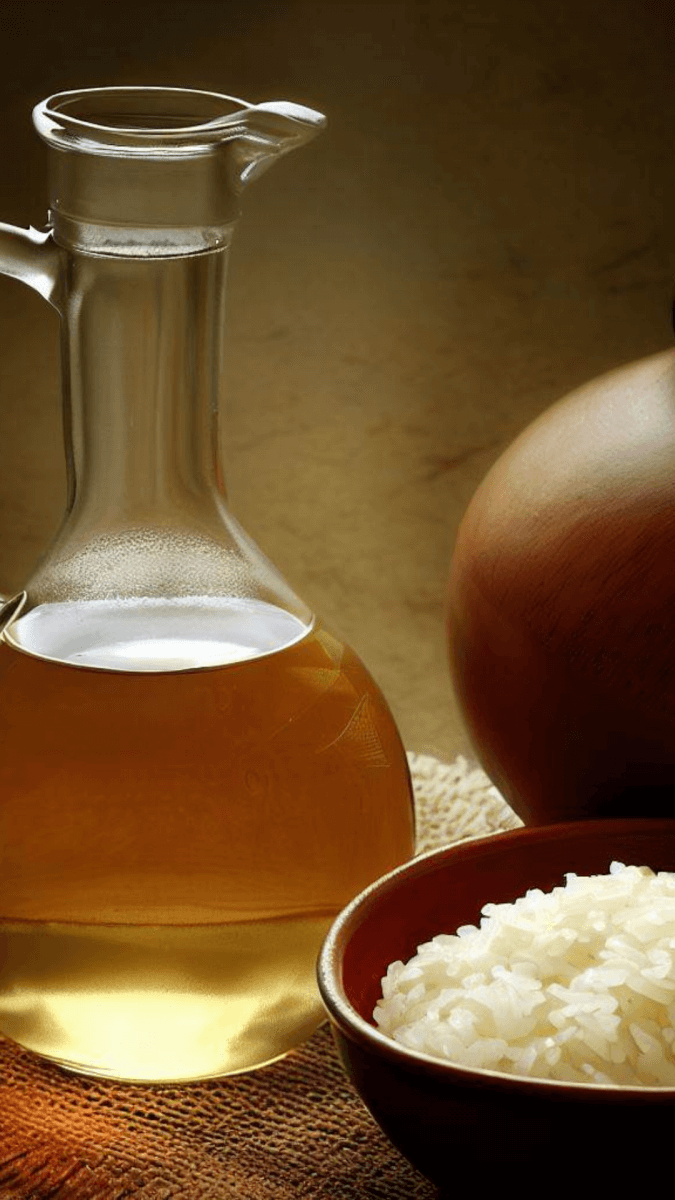
Apple Cider Vinegar
Apple cider vinegar can be used as a substitute for black vinegar with some adjustments. Just remember there will be differences in flavor and color. Here’s how you can use apple cider vinegar as a substitute for black vinegar:
- Apple cider vinegar is quite acidic, so you may need to dilute it with water to reduce its acidity. Start by using a mixture of apple cider vinegar and water in a ratio that works for your recipe. You can then adjust the quantity as needed to achieve the desired level of tanginess.
- Black vinegar has a unique smoky, complex flavor that apple cider vinegar doesn’t possess. To enhance the flavor, you can add a touch of sweetness and richness. Consider adding a small amount of brown sugar, honey, or even a splash of soy sauce. These additions will help mimic the depth of flavor found in black vinegar.
- Black vinegar is dark in color, while apple cider vinegar is lighter. If color is important to your dish, experiment by adding a small amount of dark soy sauce to the mixture. This can help achieve a closer resemblance to the original color.
- Apple cider vinegar can work as a substitute for black vinegar in recipes where the tanginess won’t clash with other flavors. It’s particularly well-suited for marinades, salad dressings, and pickling solutions. It can also work well in sauces where the specific flavor of black vinegar isn’t the main focus.
- Begin with a smaller quantity of apple cider vinegar and gradually adjust to taste. Since apple cider vinegar has a strong flavor, it’s important to be cautious and avoid overwhelming the dish with its acidity.
- If you’re using apple cider vinegar as a substitute in Asian dishes, consider incorporating other ingredients commonly used in Asian cuisine to help balance the flavors. Ginger, garlic, sesame oil, and even a touch of soy sauce can complement the tanginess of the vinegar.
- If you have other types of vinegar on hand, such as white wine vinegar or sherry vinegar, these might offer a closer match in terms of flavor and acidity compared to apple cider vinegar.
Remember that while apple cider vinegar can be used as a substitute for black vinegar in certain scenarios, it won’t perfectly replicate the flavor and characteristics of black vinegar. However, with some creativity and experimentation, you can still create delicious dishes using the ingredients you have available.

White Vinegar
Using white vinegar as a substitute for black vinegar requires significant adjustments due to the stark differences in flavor and color. White vinegar is highly acidic and lacks the complexity and smokiness of black vinegar. However, in some cases, you can use it as a last resort if no other vinegar options are available. Here’s how you can use white vinegar as a substitute for black vinegar:
- White vinegar is much stronger in terms of acidity than black vinegar. You will need to dilute it with water to reduce its intensity. Start by mixing white vinegar and water in a ratio that works for your recipe. This will help lessen the harshness of the acidity.
- White vinegar lacks the nuanced flavor of black vinegar. To mimic some of the complexity, you can add a touch of sugar or honey for sweetness. You can even add a bit of soy sauce to add depth. For color, consider adding a small amount of dark soy sauce to achieve a darker hue.
- White vinegar can be used as a substitute in dishes where the vinegar’s specific flavor isn’t a central element. This might include recipes that call for a splash of vinegar for acidity. Think of recipes such as certain dressings, marinades, or pickling liquids.
- Since white vinegar is highly acidic, it’s crucial to start with a very small amount and gradually increase it. Taste the dish as you go to ensure you’re not overpowering it with acidity.
- If you’re using white vinegar as a substitute in recipes inspired by Asian cuisine, consider incorporating other ingredients. Other Asian ingredients could include ginger, garlic, sesame oil, and soy sauce. These can help balance out the intense acidity of white vinegar.
- If you have other types of vinegar available, such as rice, red wine, or sherry vinegar, these might be better options. This is due to the fact they have milder flavors.
It’s important to note that white vinegar is a significantly different ingredient from black vinegar. Therefore, using it as a substitute might result in a dish that is quite different in taste and appearance. Whenever possible, it’s best to use a vinegar that is more closely aligned with the flavor profile.
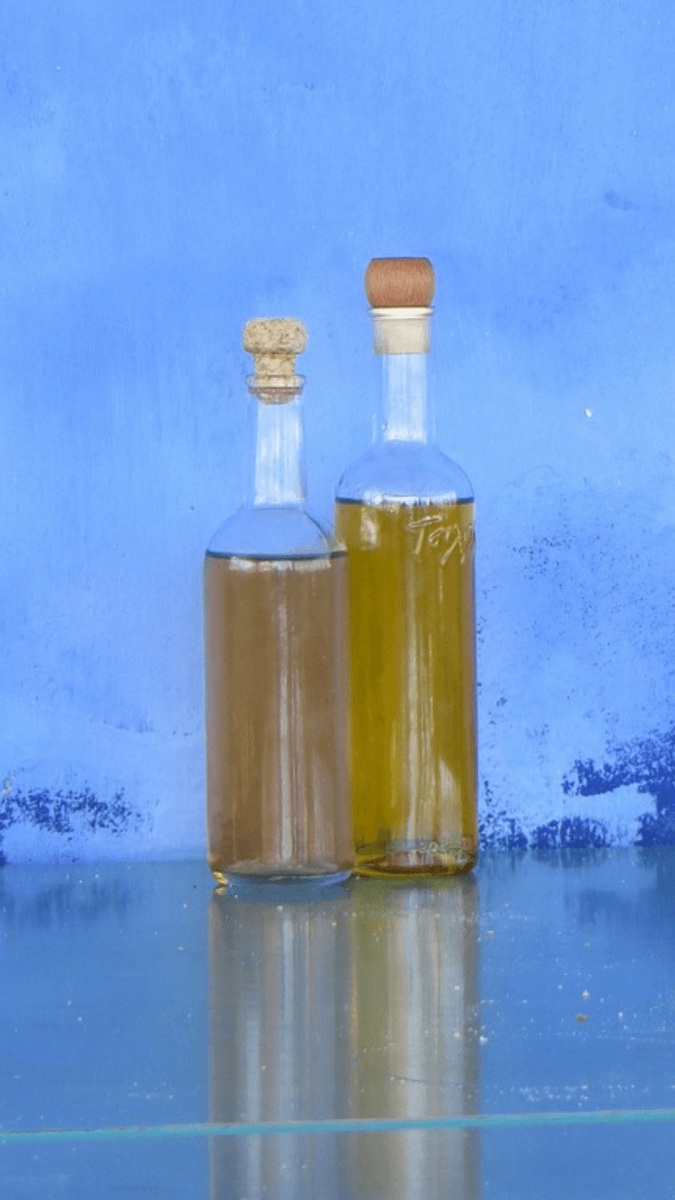
Malt Vinegar
Malt vinegar can be a closer substitute for black vinegar compared to some other types of vinegar. Both malt vinegar and black vinegar have a distinct, slightly sweet and tangy flavor. However, there are still differences in taste and color. Here’s how you can use malt vinegar as a substitute for black vinegar:
- Malt vinegar is moderately acidic, similar to black vinegar, but it may have a slightly stronger acidity. You can use malt vinegar as-is without dilution, but you might need to adjust the quantity to match the level of tanginess required in your recipe. Start with a smaller amount and taste as you go, gradually adding more if needed.
- Malt vinegar has a slightly sweet and malty flavor that can be reminiscent of black vinegar’s complexity. You may not need to add as much sweetness to balance the flavor, but if necessary, a small amount of brown sugar or honey can help enhance the taste.
- Malt vinegar is generally lighter in color compared to black vinegar. If the color of the dish is important, you can experiment with adding a touch of dark soy sauce to the mixture to achieve a darker hue.
- Malt vinegar can be a suitable substitute for black vinegar in recipes where a slightly sweet and tangy flavor is desired. It can work well in salad dressings, marinades, and sauces, especially if the unique characteristics of black vinegar are not central to the dish.
- As with any substitution, start with a smaller quantity of malt vinegar and adjust gradually. Taste as you go and make sure to achieve the right balance of flavors.
- If you’re using malt vinegar as a substitute in Asian dishes, consider using other ingredients commonly found in Asian cuisine, such as soy sauce, ginger, garlic, and sesame oil. These can help enhance and balance the overall flavor.
- If you have other types of vinegar available, such as rice vinegar or red wine vinegar, they might also work as substitutes with some flavor adjustments.
Remember that while malt vinegar can work as a substitute for black vinegar in certain dishes, it won’t exactly replicate the unique characteristics of black vinegar. Nevertheless, your willingness to adapt and experiment can lead to satisfying results in your recipes.
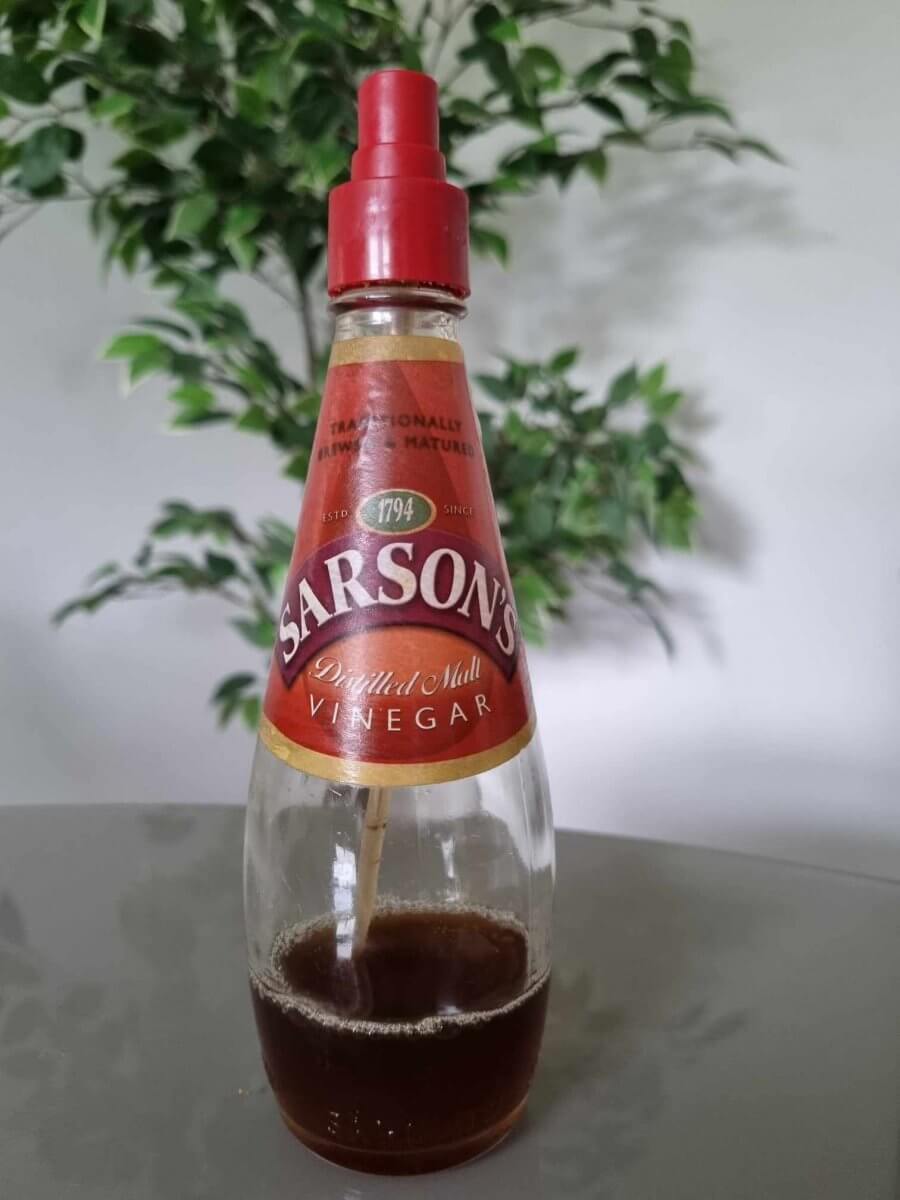
Lemon or Lime Juice with honey
Using lemon or lime juice with honey as a substitute for black vinegar can create a tangy and slightly sweet flavor profile, though it won’t replicate the unique characteristics of black vinegar. Here’s how you can use this combination as a substitute:
Ingredients:
- Fresh lemon or lime juice
- Honey
Instructions:
- Lemon and lime juice are naturally acidic, which can provide the tanginess found in black vinegar. Start by using a small amount of lemon or lime juice and gradually increase it until you achieve the desired level of tanginess. Keep in mind that citrus juices can be quite strong, so you may not need as much as you would with vinegar.
- Since black vinegar has a slightly sweet element, you can add honey to balance the acidity and provide sweetness. Begin with a small amount of honey and adjust to taste. Keep in mind that honey can vary in sweetness, so start with a conservative amount.
- The ratio of lemon or lime juice to honey will depend on your personal preference and the flavor of the dish you’re preparing. A common starting point might be 2 parts lemon or lime juice to 1 part honey, and then adjust according to taste.
- Consider adding other complementary flavors to enhance the overall profile. Depending on the dish, you might incorporate minced garlic, grated ginger, a touch of soy sauce, or even a pinch of ground black pepper.
- Lemon or lime juice with honey can work as a substitute for black vinegar in dishes that can accommodate a tangy and slightly sweet flavor. This might include marinades, salad dressings, certain sauces, and even some stir-fry dishes.
- Start by preparing a small batch of your dish and gradually add the lemon or lime juice and honey while tasting as you go. This will help you find the right balance of acidity and sweetness for your specific recipe.
- Lemon and lime juice are light in color, which might affect the appearance of your dish. If color is important, you can consider adding a small amount of dark soy sauce to darken the mixture.
Remember that while lemon or lime juice with honey can provide a tangy and sweet element similar to black vinegar, the flavor won’t be an exact match. Your creativity and willingness to adapt will play a key role in achieving a satisfying flavor balance in your dishes.
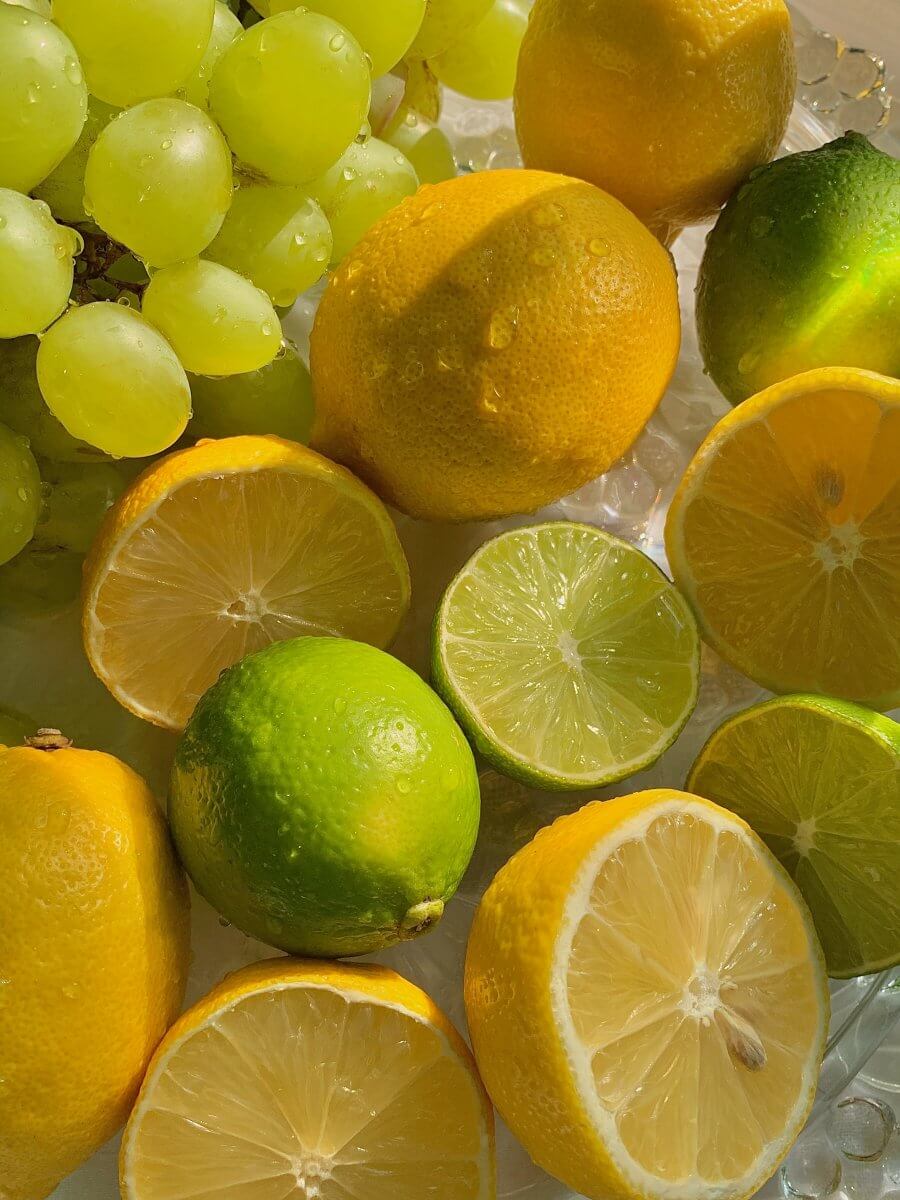
Apple Juice as a black vinegar substitute
Using apple juice as a substitute for black vinegar is quite a departure from the original flavor profile, as apple juice is sweet and fruity rather than tangy and complex. However, if you’re looking for a creative alternative, you can experiment with combining apple juice with other ingredients to achieve a balance of flavors. Here’s how you might approach it:
Ingredients:
- Apple juice
- Vinegar (such as white vinegar or rice vinegar)
- Honey or brown sugar (for sweetness)
- Soy sauce (for depth)
Instructions:
- Since apple juice lacks the acidity of vinegar, you’ll need to introduce some acidity to mimic the tanginess of black vinegar. Mix a small amount of vinegar (like white vinegar or rice vinegar) with the apple juice. Start with a small quantity of vinegar and adjust to taste, as you don’t want to overwhelm the apple flavor.
- Black vinegar often has a slightly sweet undertone, so you can add a touch of sweetness to your mixture. Use honey or brown sugar and add it slowly, tasting as you go, until you achieve the desired level of sweetness.
- Black vinegar also has a depth of flavor that comes from its fermentation process. To introduce some complexity, consider adding a splash of soy sauce. Soy sauce can contribute a hint of umami and richness that can balance the sweetness of the apple juice.
- Finding the right balance of ingredients will be a matter of experimentation. A starting point could be a mixture of about 70% apple juice, 20% vinegar, and 10% soy sauce, with honey or brown sugar added to taste.
- This apple juice and vinegar mixture can work as a substitute for black vinegar in dishes that can accommodate a sweeter and fruitier flavor profile. It might be suitable for certain salad dressings, marinades for pork or chicken, or even as a glaze for roasted vegetables.
- Begin with a small batch and adjust the ingredients gradually until you achieve a flavor that works for your dish. Remember to taste as you go and be open to adjusting the proportions to suit your preferences.
Keep in mind that while this mixture can offer an interesting alternative, it won’t replicate the exact flavor of black vinegar. Your goal is to create a balanced and pleasing flavor combination that complements the other ingredients in your dish.
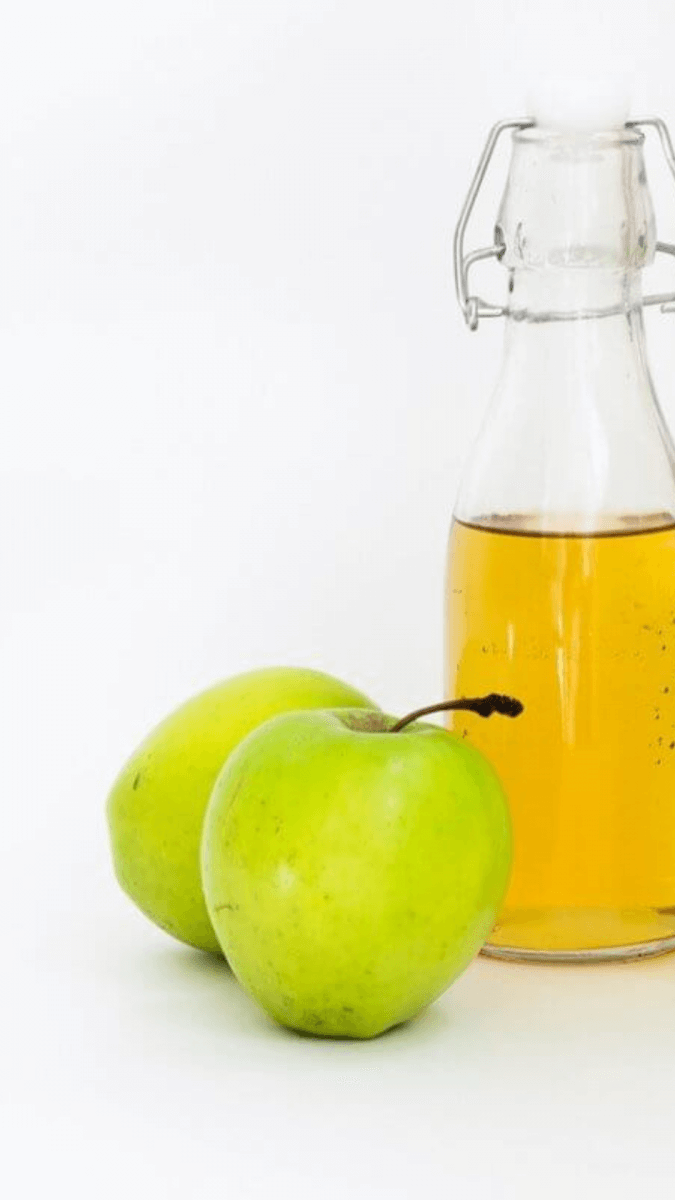
FAQs
What does black vinegar taste like?
Black vinegar, also known as Chinkiang vinegar or Chinese black vinegar, has a taste that sets it apart from other types of vinegar. It is made from fermented rice, wheat, barley, or sorghum and typically aged for a long time, often several years. The taste of black vinegar can vary depending on the specific brand and production methods, but it generally has a complex and rich flavor with a balance of sweetness, tartness, and umami notes. It can also have a deppt, malty flavor with a hint of smokiness and a subtle sweetness.
Is balsamic the same as black vinegar?
Balsamic vinegar and black vinegar are similar in color, but they are distinct types of vinegar with different flavors and production methods. : Balsamic vinegar is typically made from pressed grapes, usually Trebbiano grapes or grape “must” (crushed grapes, including the juice, skins, seeds, and stems), which are cooked down and then aged. On the other hand, black vinegar is made from grains like rice, wheat, barley, or sorghum. They also undergo different production processes. Balsamic vinegar undergoes a slow aging process in wooden barrels, which can last for many years. During this time, the vinegar develops its characteristic sweet and tangy flavor profile. Black vinegar, on the other hand, is traditionally fermented and aged in clay pots or wooden barrels for a shorter period compared to balsamic vinegar.
They both also have individual flavor profiles. Balsamic vinegar has a sweet, complex flavor with hints of fruitiness and a rich, syrupy consistency. Black vinegar, on the other hand, has a deeper, more savory flavor profile with notes of malt, smoke, and umami. It tends to be less sweet and more tart compared to balsamic vinegar.
Summary for Black Vinegar substitutes
Okay – that’s you all sorted with suitable substitutes for black vinegar.
In conclusion, using a substitute for black vinegar involves understanding the unique characteristics of black vinegar and how to replicate them as closely as possible with the ingredients you have available. While it’s challenging to perfectly match the flavor and complexity of black vinegar, you can get creative and experiment to achieve satisfactory results:
- Acidity: Choose a vinegar with a moderate acidity level, like rice vinegar or red wine vinegar, and adjust the quantity to match the tanginess of black vinegar.
- Sweetness: Consider adding a touch of sweetness using ingredients like honey, brown sugar, or even fruit juices to mimic the slightly sweet undertones of black vinegar.
- Depth of Flavor: To replicate the smokiness and complexity of black vinegar, incorporate ingredients like soy sauce, dark soy sauce, minced garlic, grated ginger, or sesame oil.
- Color: If color is crucial to your dish, experiment with adding dark soy sauce to achieve a deeper hue.
- Experimentation: Start with small batches, gradually adjusting proportions and flavors until you achieve a balanced and satisfying result.
Remember that while your substitute may not exactly replicate the original flavor of black vinegar, your willingness to adapt and experiment can lead to unique and delicious dishes that suit your taste preferences and the ingredients you have on hand.
We have gathered together a lot more facts on ingredients such as herbs, spices, oils, nuts, etc. if you would like to learn some more.
